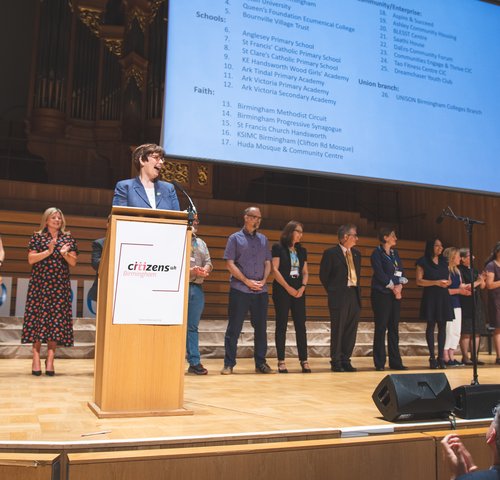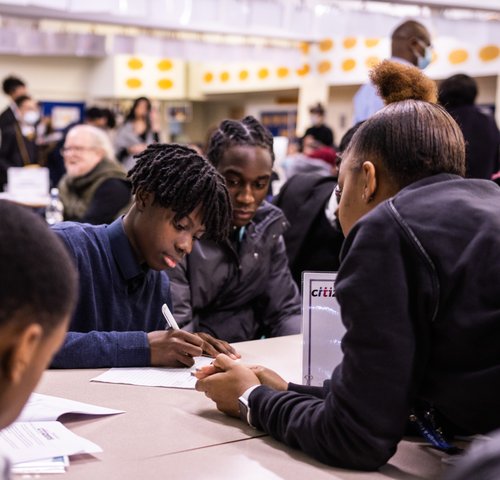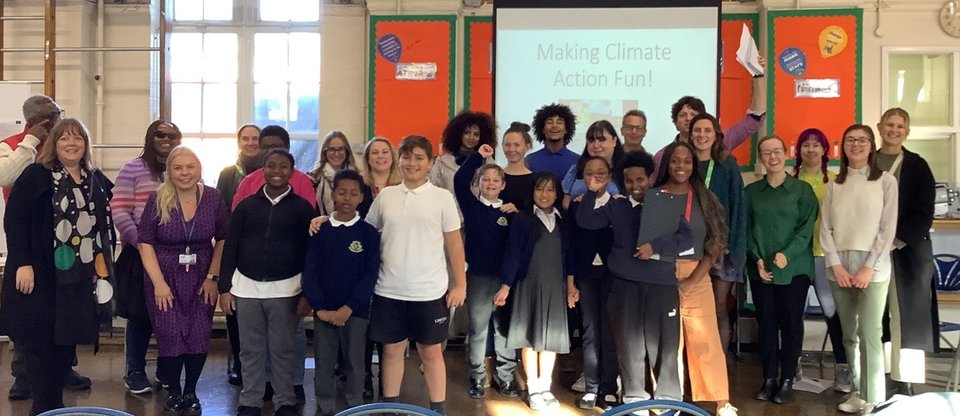School and College-Based Counselling
We know everyday people have the ability to shape the world around them.
That's why pupils, teachers, unions and health organisations from chapters across Citizens UK are coming together to drive nationwide change on mental health services in schools and colleges - an issue that communities care about.
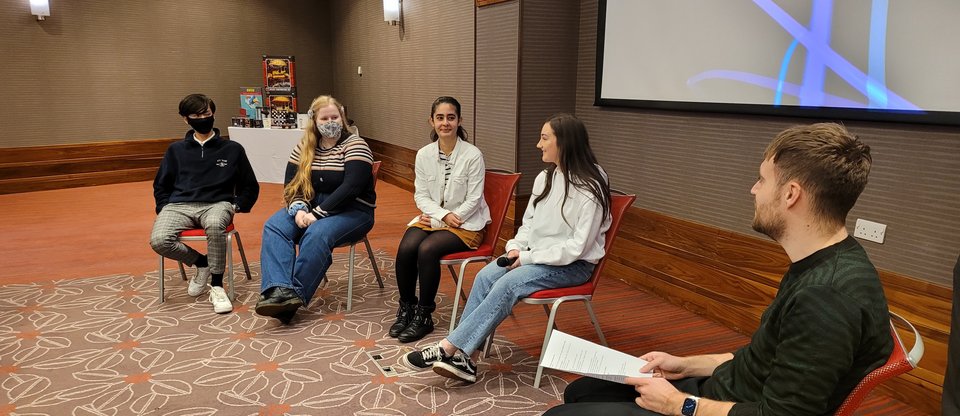
Citizens UK is calling on the UK Government to make it a legal requirement to provide counselling in primary schools, secondary schools, and Further Education colleges in England.
This measure would change countless lives and give young people hope for their futures. By providing effective support earlier on at an estimated cost of £571 million per year, school- and college-based counselling could save hundreds of millions otherwise lost to harder to access services and other factors that affect the UK economy, such as lost productivity at work and reduced quality of life.
Read our full briefing using the button below.
Why does it matter?
Since 2018, Citizens UK alliances have listened to tens of thousands of people about the mental health of children and young people, including pupils, parents and teachers in the North East who highlighted how existing services often failed to meet the health needs of children and young people.
Unlike in Northern Ireland, Scotland and Wales, there is no statutory requirement for, or provision of, counselling in schools and colleges in England. This leaves some children and young people in England without access to a counsellor.
Children are being rejected from services
In 2022, a survey of GPs reported that half said six in ten of their referrals to Child and Adolescent Mental Health Services were rejected on the grounds that their symptoms were not severe enough, even though only the most at-risk children and young people are referred.
Power-holders already know how important mental health support in schools is
In 2019, the UK Government began piloting Mental Health Support Teams in England. Mental Health Support Teams work across schools, supporting them to develop low-intensity interventions for children and young people experiencing mild to moderate mental health difficulties. By 2024, it is anticipated these teams will reach fifty percent of all schools and colleges.
In November 2021 a Back-bench debate on School-based counselling took place. Nick Brown MP recognised Tyne & Wear Citizens. Paul Bristow recognised Peterborough Citizens. The Minister of State and MP for Colchester, Will Quince responded. Read the Debate Part 1 | Debate Part 2, and watch the recording which started at 5pm.
Will school- and college-based counselling work?
School and College-based counselling is a proven intervention for children and young people experiencing psychological distress. Counselling provided in schools and colleges has also been shown to minimise pressure on Child and Adolescent Mental Health Services.
Citizens UK believes school- and college-based counselling can fill the ‘missing middle’ between Mental Health Support Teams and Child and Adolescent Mental Health Services. As well as serve those children and young people who do not have access to these earlier help teams due to the scale of the roll-out.
We are calling on the UK Government to secure the statutory provision of counselling in primary schools, secondary schools and Further Education colleges in England that is:
Cooperative
Beginning with a commitment to early years mental health education, the provision of counselling should be situated strategically on a continuum of intervention and support. The provision of counselling can take different forms according to the child or young person’s preference (face-to-face sessions at school or external venues, telephone counselling and wellbeing apps).
Collaborative
Counsellors should liaise internally with their school/college (Mental Health Lead, Family Liaison Officer, senior management team) and with external agencies (Social Services, Police, Local Education Authority), so that provision is sensitive to the child or young person’s family dynamics, the impact of social determinants and the demography of the school/college catchment area.
Consistent
Counselling should be provided by those trained on a nationally-recognised course, registered with a professional body for reasons of ethical oversight, training and supervision, and experienced in working with school- and college-age students.
Key facts and figures
Citizens UK is grateful to Jo Holmes, Children, Young People and Families Lead, British Association for Counselling and Psychotherapy for her assistance in calculating these costings.
- As of June 2023, there are 10.7 million young people in English primary schools, secondary schools and Further Education colleges (9.1 million pupils in primary and secondary education in England, and a further 1.6 million students in further education).
- In 2022, one in six children aged 5 to 19 years were identified as having a probable mental disorder. This means that 1.8 million young people in England could require counselling.
- Pupils normally attend an average of six sessions of counselling. This comes to 10.8 million counselling sessions annually.
- A counsellor will work 18 sessions per week. A full-time counsellor will work a maximum of 46 weeks. This means that 13,043 counsellors would need to be employed.
- According to the British Association for Counselling and Psychotherapy Children and Young Peoples Competence Framework, the minimum level of qualification and experience required for being a school or college-based counsellor is a Diploma in Higher Education in Counselling (Level 4). However, if this training was in an adult modality, top-up training or ongoing Continuing Professional Development aligned to the Children and Young Peoples Competence Framework must be demonstrated.
- According to the National Joint Council for Local Government Services 2022/23 pay scale:
- A newly qualified counsellor (NJC SCP 17) would earn £26,845 per annum. Paying 13,043 counsellors would cost £350 million
- A BACP accredited counsellor (NJC SCP 27) would earn £33,820 per annum. Paying 13,043 counsellors would cost £441 million
- If National Insurance contributions, employer pension contribution and the costs of training, transport and supervision are estimated to total £10,000 per counsellor per annum, this would add £130 million to the costs.
- This means the cost of employing 13,043 counsellors would come to:
▪ £480 million per annum (for newly qualified counsellors).
▪ £571 million per annum (for BACP accredited counsellors).
This compares with the £998 million spent on Child and Young Peoples Mental Health Services in 2022
The wider economic costs of mental illness in England (mental health services, lost productivity at work and reduced quality of life) have been estimated at £118 billion or 5 per cent of GDP annually
Key Leaders for this Campaign
Citizens UK is the UK’s biggest, most diverse, and most effective people-powered alliance. We develop community leaders who come together to win change. The key chapters in this campaign are:
Birmingham Citizens
Bradford Citizens
Brighton & Hove Citizens
Leicester and Leicestershire Citizens
North London Citizens
Nottingham Citizens
Somerset Citizens
Tyne & Wear Citizens
Emerging Citizens alliances in the South West of England
How to get involved
For more information on the campaign please email Citizens UK Headteacher-in-Residence and Assistant Director Sebastien Chapleau, or point of contact for the national School- and College-based Counselling Action Team, Reverend Simon Mason.
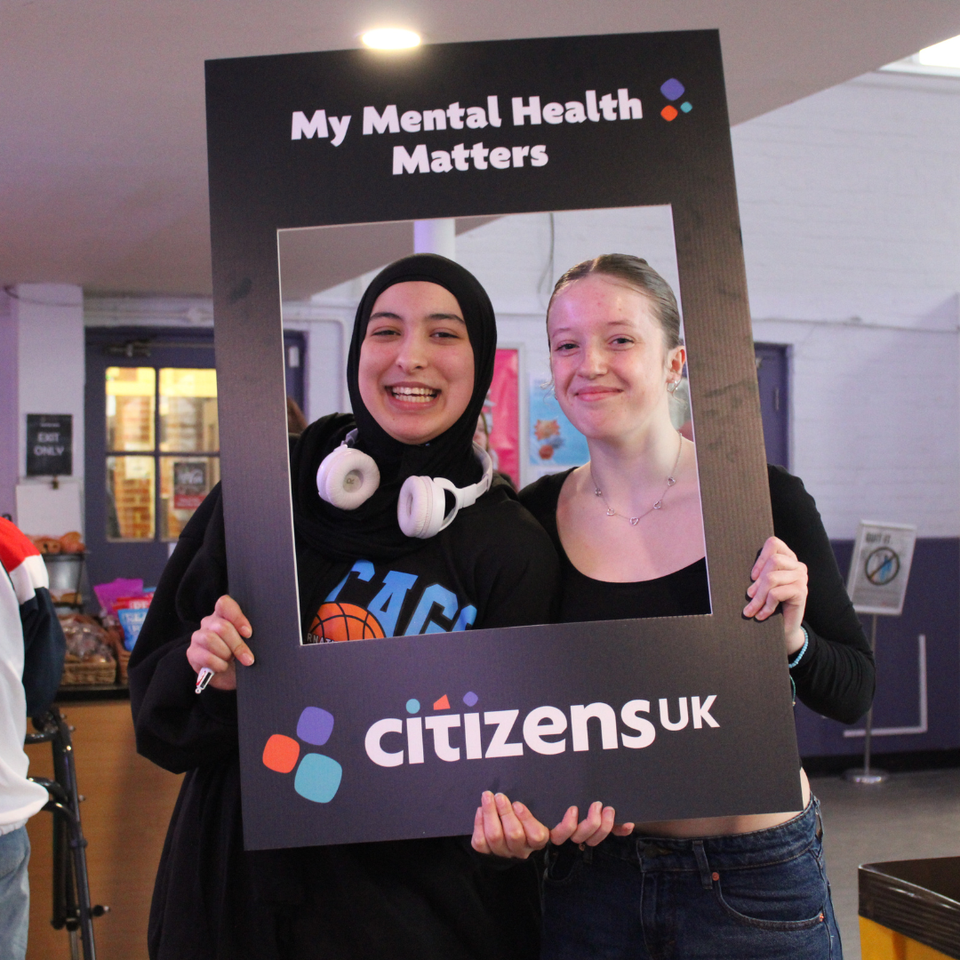
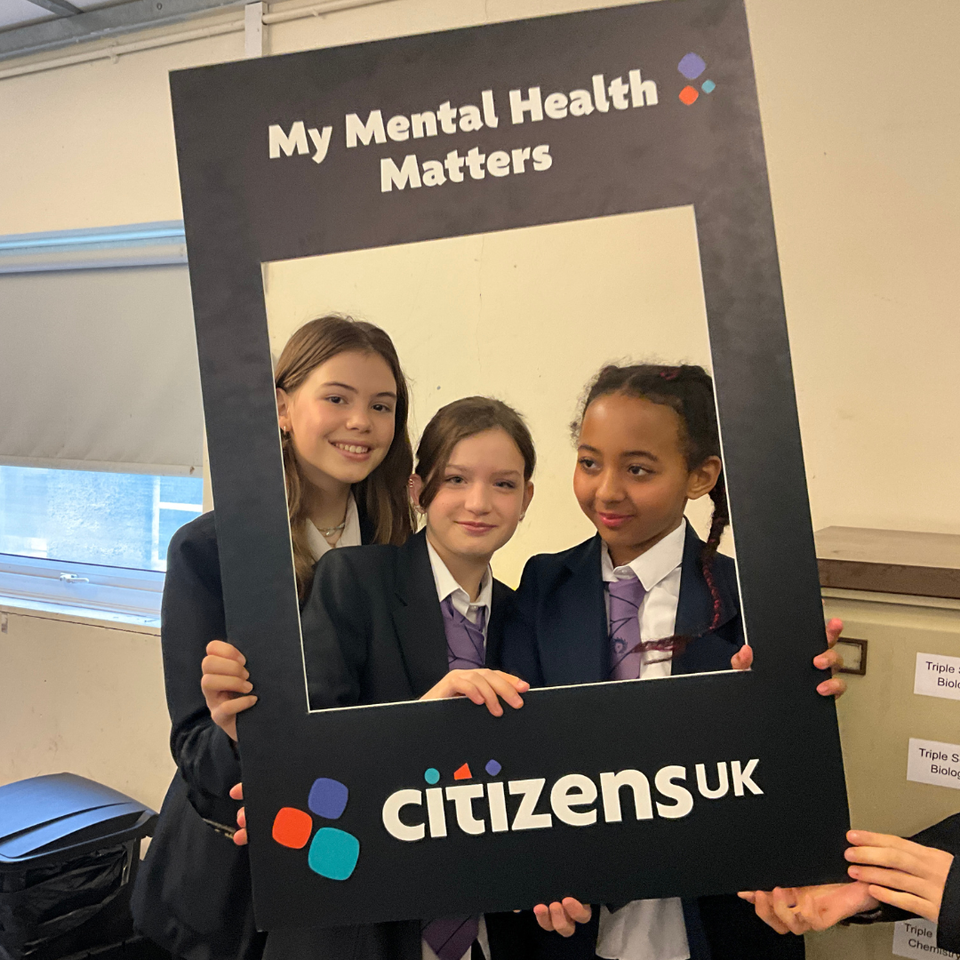
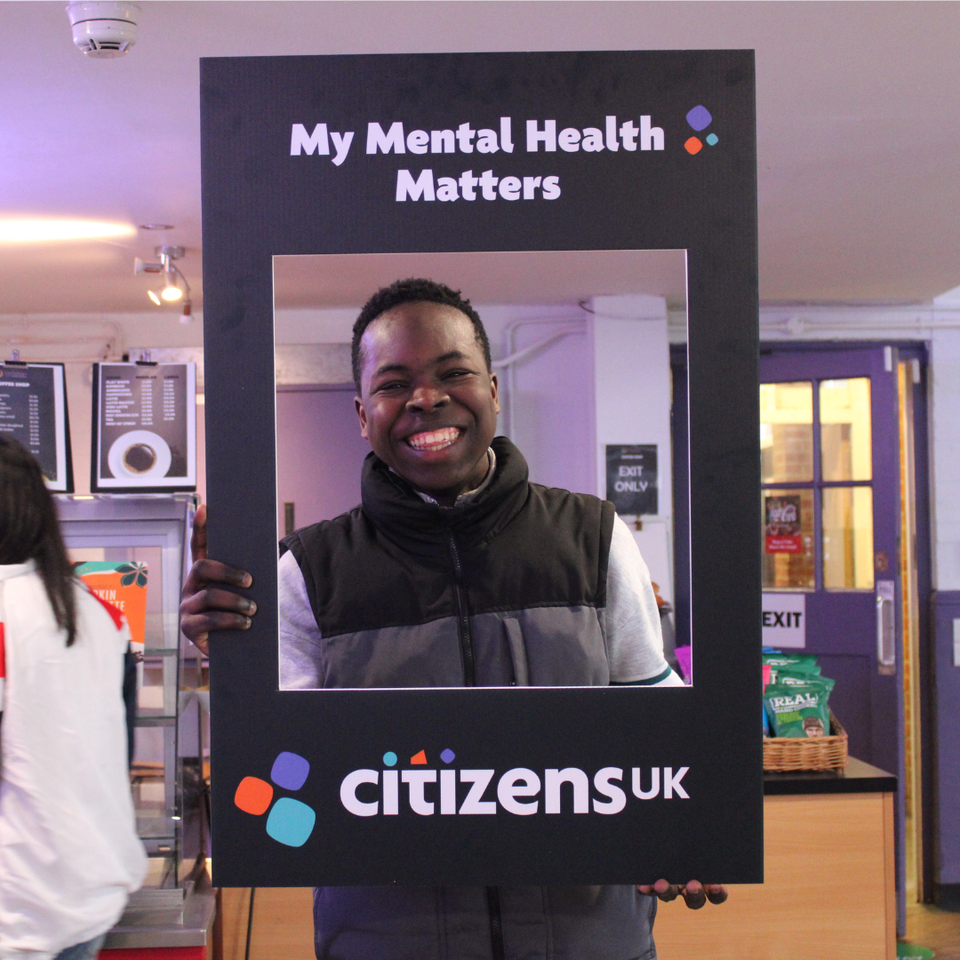
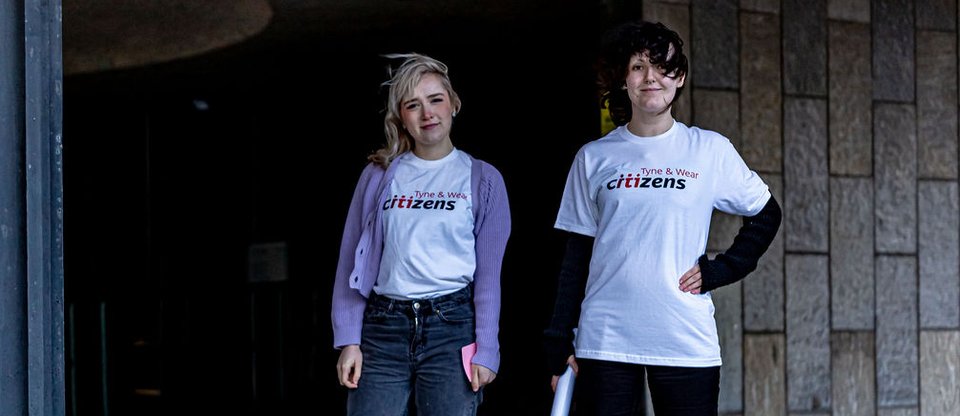
The school and college-based counselling campaign started in 2017, when community leaders from Tyne and Wear Citizens heard countless stories of mental health struggles from people in organisations across the city. Together, they won change on numerous issues including securing a programme to roll out a qualified counsellor in every school across the North East. Read about how everyday people drove local and nationwide change by creating a 'Citizens Commission' - a unique process for overcoming injustice and putting the power back in people's hands.
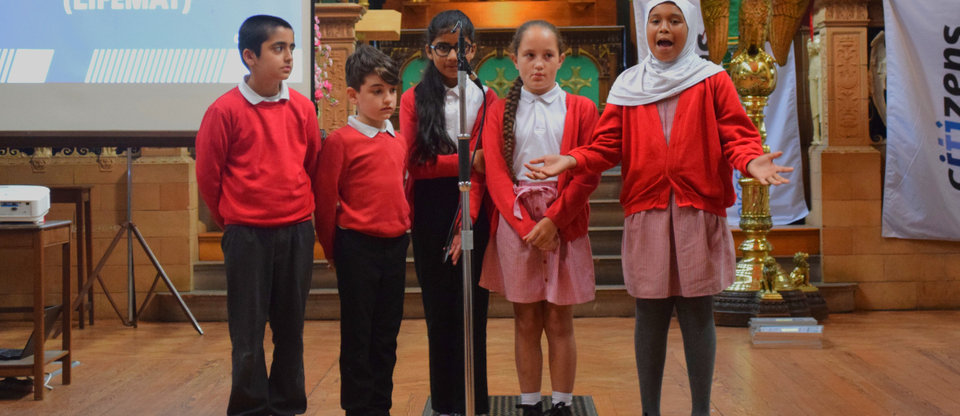
In response to the worsening mental health situation for children and young people in England, Citizens UK has allied with the NASUWT, BACP, NAHT, NCPS and Parentkind during Children's Mental Health Week 2024, to campaign for statutory School-Based Counselling.
Resources for schools and colleges
Our free e-books are packed full of stories of young people and educational institutions winning change in communities across the UK. From big wins on housing and transport, to supporting migrant families and fighting racial discrimination, they are a must-read for anyone wanting to shift the balance for the better.


